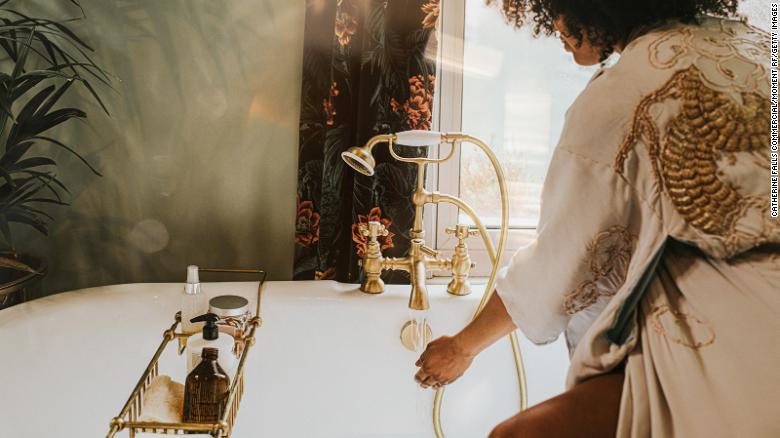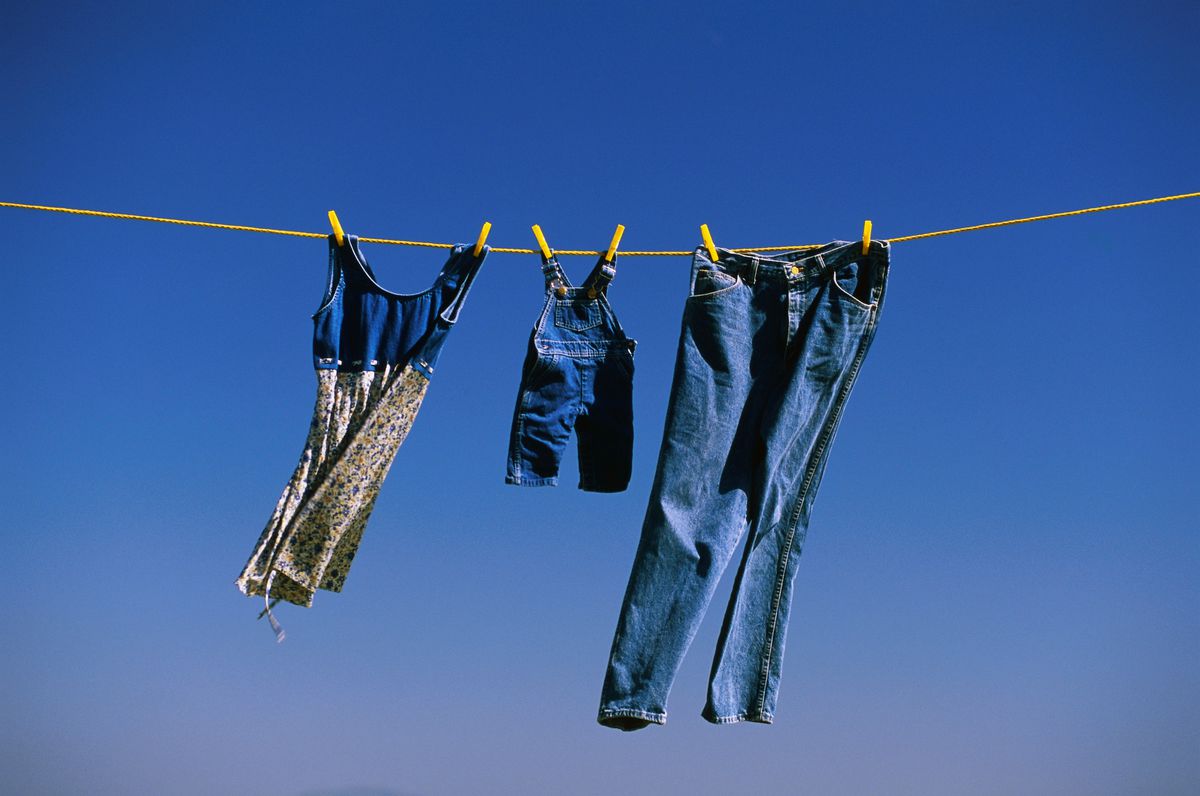The phenomenon of showering or bathing daily is quite current, according to surveys.
(CNN) --
My earliest memories of the bathroom were of my mother dragging me into the tub while I kicked and screamed.
Those days are behind me and now I am one of those who take a shower once a day.
Maybe that's why, for a few months, I get that disgusted face when I hear about people who don't shower or bathe every day.
But what if the roughly two-thirds of Americans who shower daily and I were wrong?
What if bathing every day is not the best way to be hygienic?
That's the topic of the latest episode of my "Margins of Error" podcast, where we go beyond the news cycle and tackle the issues we face every day.
Let's face it: we live in a society where judging others can be a favorite pastime.
This is especially true when it comes to how people look and present themselves.
We judge others by their toilet
Just ask Dr. James Hamblin, who caused a sensation a few years ago when he decided to stop showering cold turkey.
Following his experiment, he wrote a book titled "Clean: The New Science of Skin and the Beauty of Doing Less."
advertising
"Hygiene is one of the last areas where people are openly called disgusting or disgusting," Hamblin told me.
"We have come a long way in many other areas, but this remains an area of unrepentant judgment and we need to examine it."
No one is immune from this judgment.
Mila Kunis and Ashton Kutcher made a lot of headlines last summer when they admitted to taking a laid-back approach to their kids' bathroom habits.
Humans have a complicated history with bathing dating back to ancient Rome, says one author.
But surveys tell us how current is the phenomenon of showering or bathing regularly.
According to Gallup, in 1950, less than 30% of Americans showered or bathed at least once a day in winter.
However, we seemed to survive without problems.
So I decided to do some more research on the subject.
Why do we bathe so much now and do we need it?
Where do we draw the line between what is necessary for our hygiene... and what is just marketing?
According to Katherine Ashenburg, author of "The Dirt on Clean: An Unsanitized History," humans have a complicated history with the bathroom dating back to ancient Rome.
Although the Romans loved their baths, bathing became a dirty word for the next few hundred years.
When the Black Death arrived in the 14th century, Katherine said that doctors believed "you were more likely to catch the plague if you took hot baths, because they said, 'Hot baths will open up the pores and the disease will enter through them.'
An eye-opening fact: French King Louis XIV reportedly rarely bathed.
But he was granted a permit because he changed his linen shirts several times a day.
Go figure.
Is it bad for us to clean ourselves too much?
What has changed?
For one thing, we've learned much more about germ theory.
We have much more accessibility to clean water sources, soap, and toilets.
On the other hand, marketing has skyrocketed.
There is no going back without an ad trying to sell you a product to keep you clean.
It is a multi-billion dollar industry.
Some medical professionals believe that over-cleaning makes us less healthy.
Yeah, it turns out we could benefit from a few more germs.
So tune in to this week's podcast episode, where we're going to explore how often you really need to wash, and why it's important to understand the difference between hygiene and cleanliness.
Also, I do my own grooming experiment.
(I swear it's not that gross).
Bath


/cloudfront-eu-central-1.images.arcpublishing.com/prisa/2S37M3K3RRCEBPSIBWEYNJ2BHE.jpg)






